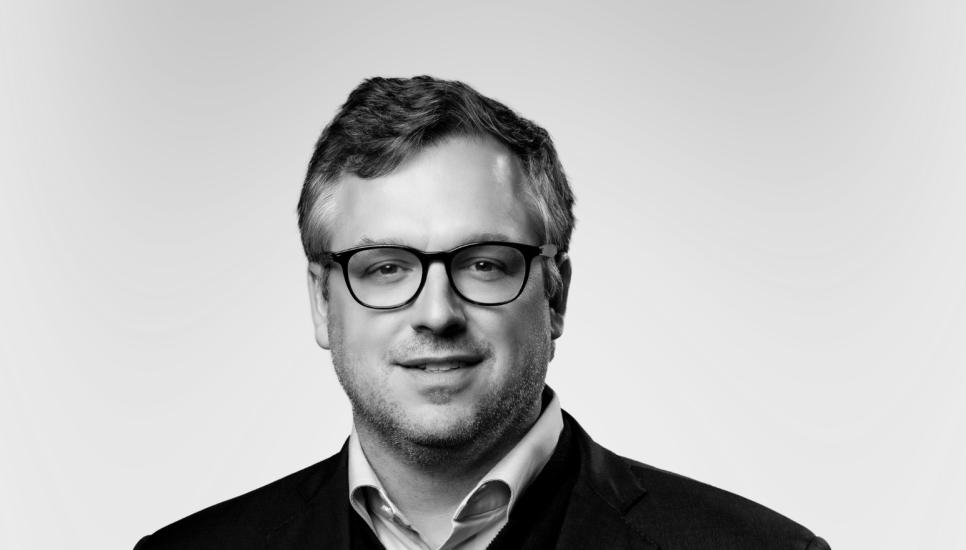Paul Desmarais III: Motivated by legacy

Being born to a multi-generational family of wealth and the weight that privilege carries can be daunting enough to many Next Gens. But when you share the name of the founder and his successor, that load can be brought even further to the forefront.
Named sequentially after his grandfather and father, Paul Desmarais III, however, has proved time and again that he was born to the business and has made his mark in multiple ways.
Having earned a Bachelor of Science degree in economics from Harvard College and a Master of Business Administration degree from INSEAD, Paul’s career began at Goldman Sachs, Imerys and Great-West Lifeco before joining the family firm, Power Corporation of Canada.
Paul has led Sagard since 2016, has partnered with countless entrepreneurs and built a global expertise network, driving assets under management increasing to more than $25 billion.
Here, in an exclusive interview, Paul talks about his journey, aspirations and legacy.
Let’s talk about the history of the family wealth, how did it all begin and how did you get to here?
What’s unique about our story is that we’ve continuously transformed our group. We started with a bus company, which my grandfather acquired, and we then evolved into a transportation, industrial and media holding, eventually transforming once again into a financial services-focused firm.
My father and my uncle led this third transformation, and they played a leading role in the consolidation of Canada’s financial services industry.
Ultimately, I think our values of hard work, excellence, integrity and entrepreneurship were key to our success, and I have benefited immensely from being taught these values from an early age. It gave me a clear understanding of how sustainable companies are built, prosper and lead, both at home and abroad.
As the third Paul Desmarais, you not only carry the family legacy but the name of your father and grandfather. Is that sometimes a tough thing to carry?
Everyone is well aware of the famous “shirtsleeves to shirtsleeves in three generations” trope. That is something that I often think about. But ultimately, I believe it can be overcome through hard work, continuous improvement, and humility. I believe that our family’s third generation will be one of our most successful generations.
The legacy my father and grandfather left behind is not just a name; it is a testament to hard work and determination. Their achievements inspire me to set high standards for myself and constantly strive for improvement.
“Everyone is well aware of the famous ‘shirtsleeves to shirtsleeves in three generations’ trope. That is something that I think about often.”
Your storied career has seen you work at Goldman Sachs, Imerys, and Great-West Lifeco before you followed in your family’s footsteps at Power Corporation of Canada. Was it always your hope to join the family business?
Actually, I grew up with the understanding that I would never work in the family business. It was only once I’d spent five years at Goldman Sachs that my father offered me the opportunity to join the group.
Ultimately, joining a family group is a very different direction, and it requires a lot of reflection. Within the group, I’ve chosen to forge my own path, and I think it’s an amazing privilege to be an intrapreneur in a family business, while many members of families are forced to follow exactly the footsteps of their predecessors. The fact that I can build within our group and be a direct shareholder of my business alongside our family group, is a unique gift that I’m extremely grateful for.
You became Chairman and CEO of Sagard in 2016, overseeing its transformation to become a global alternative asset manager. Can you talk about how that renewed focus came about and what your goals were at the time?
I received training at Goldman Sachs and recognized that I had a unique understanding of the investment world through this training. I felt that leveraging this skill would be the most productive thing for me to focus on. Often, entrepreneurship happens when opportunity matches capability. I would have loved to be a technology entrepreneur, but I did not have an engineering background. I happen to have an investor skillset and good leadership ability. What aligned best with this skillset was launching an asset manager. We did this in an environment that included an insurance company and a mutual fund company, which gave me yet another advantage in building this business.
Your support for innovation is clear. What do you feel you bring to the table for these innovators?
Our purpose is empowering progress. In addition, one of our core values is innovation. We believe that innovation drives forward prosperity and improves quality of life. Often, innovators struggle to attract early adopters. We have an incredible ecosystem that helps attract early adopters and increases the value we can bring to innovators.
One of disruptive innovation's biggest challenges is gaining clients faster than the incumbents. By partnering with us, we're able to accelerate the path of disruptors gaining clients, which ultimately allows us to scale, raise more capital, and become global champions.
Let’s talk about the firms you’ve invested in. Is there a connective throughline? What do you look for in an investment?
We start with entrepreneurs who have ambition, vision or a strategy to change their industry. Once we've found those entrepreneurs, we accompany them through our network and capital to help them execute those objectives.
For example, Wealthsimple chief executive Michael Katchen is a Canadian entrepreneur who wanted to transform the way Canadians access financial advice. We've grown from zero to two million clients today who benefit from his vision. Ultimately, in the process of executing that, we’ve created a Canadian champion.
If you look at other businesses in the portfolio, such as Ceva, the chief executive is an entrepreneur who had the vision to build a global champion in the animal pharmaceutical space through both consolidation and the opening of new markets and geographies. We were able to back that entrepreneur in their journey, and we’ve done it over and over again.
In the case of Kiloutou and Lou-Tec, both equipment rental businesses active respectively in France and Canada, we backed entrepreneurs and their desire to consolidate their industries, over the course of our ownership, we accompanied them in multiple acquisitions and integrations, creating national champions through our active ownership.
“Ultimately, our goal as a firm is to leave a legacy of impact.”
Sagard seems to represent the spirit of innovation and entrepreneurship that put the Desmarais family on the map. Obviously a business venture, is Sagard also a way of giving back or perhaps paying it forward?
Ultimately, our goal as a firm is to leave a legacy of impact. For me, that legacy is having 1,000 entrepreneurs look back on their lives and believe that meeting Sagard was one of the best things that ever happened to them.
As we help those entrepreneurs, we're also helping thousands of people who work with them to fulfill the company's missions, which ultimately create prosperity and wealth in different communities. Now, we believe that is a great way to give back to the countries in which we operate while generating attractive returns for investors.
Dedicated as you are to building a better business world – you’re co-founder of the Black Wealth Club – and, under your leadership, Sagard has committed to a more sustainable financial system. Can you talk us through more about this principle of responsibility?
In the same way that we believe in using our network to support entrepreneurs, we believe that many segments of society don’t have access to the same opportunities as others.
The creation of the Black Wealth Club and Indigenous Leadership Circles are vectors through which we can bring our networks, capabilities, knowledge and abilities to give members of communities that have less opportunity, a chance to have more equal opportunities.
We think that this is a great way for us to do our part in having an impact and we ultimately believe that by having entrepreneurial success in these underserved communities that, in turn, will drive prosperity and self-determination for them.






